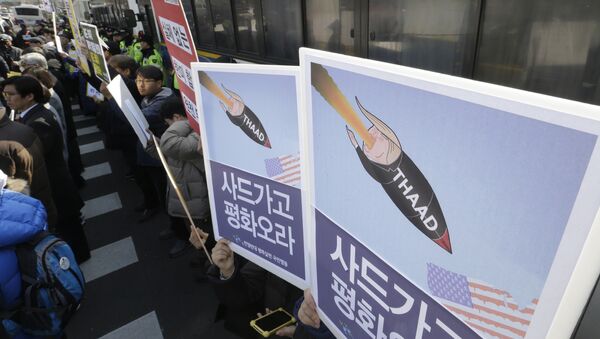Lotte, South Korea's fifth-largest conglomerate, experienced disruptions in its Chinese and international websites starting Tuesday night, right after it agreed to provide land to the government to host the US-built missile-defence system. The company believes the disruptions are the result of a cyberattack by Chinese hackers.
While South Korea claims the missile system is meant to protect the close US ally from North Korean nuclear and missile threats, Beijing objects to the deployment, fearing that the technology could be used against China.
But on Friday, the share price of duty-free retailer Hotel Shilla Co Ltd ended 13-percent lower, while cosmetics-maker Amorepacific Corp closed at a two-year low, as investors feared China would choke off a key source of tourist dollars.
A majority of top Korean companies rely heavily on Chinese sales. Shares of Hyundai Motor Co slid 4.4 percent Friday, after photos of a vandalized Hyundai car circulated on Chinese social media. Shares of flag carrier Korean Air Lines Co Ltd ended down by 4.8 percent. A spokesman said the airline was disturbed by the reports and was monitoring the situation.
South Korean foreign minister Yun Byung-se said he was reviewing whether the guidance to ban tours to the country violated international norms.
"If such reports are true, it would be an unfair action… and very regrettable," the foreign ministry said, as cited by Yonhap News Agency.
According to Professor Wu Xinbo at China's prestigious Fudan University, Beijing's reaction to a missile deployment that he described as "stabbing China in the back" was rightful.
"As a sovereign nation, Korea says its decision to deploy THAAD is out of consideration for national security," Wu told the Global Times. "By the same logic, China has the right to oppose THAAD on the basis of its own national security."




